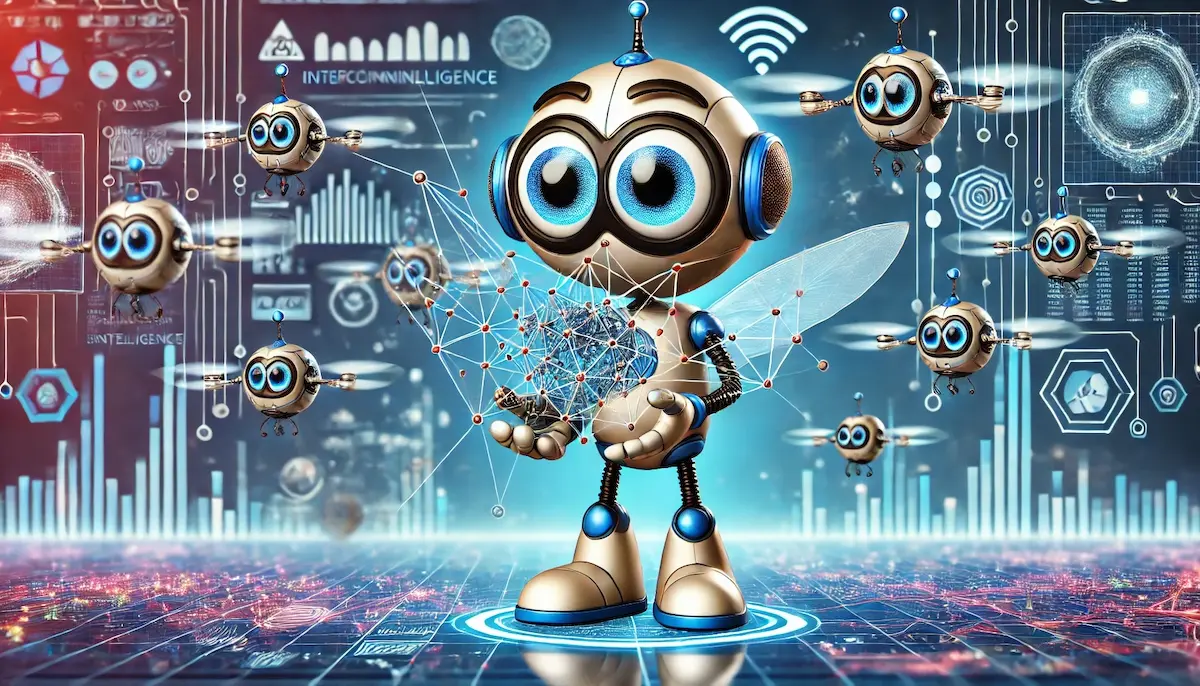Swarm intelligence is a fascinating field of artificial intelligence that draws inspiration from the collective behavior of social insects like ants, bees, and termites. These creatures, despite their simple individual behaviors, exhibit remarkable problem-solving abilities and coordination when working together as a group. By mimicking these natural processes, researchers and engineers aim to develop algorithms and systems that can solve complex problems efficiently and robustly.
Principles of Swarm Intelligence
Decentralization
One of the core principles of swarm intelligence is the lack of a central control mechanism. Instead of being directed by a single leader, each member of the swarm operates based on local information and simple rules. This decentralization makes the system more resilient to failures and adaptable to changing environments.
Self-Organization
Swarm intelligence systems are self-organizing, meaning that the global pattern or behavior emerges from the interactions between individual agents. These agents follow simple rules and communicate with each other through direct or indirect means, such as pheromone trails in ants or vibrations in bees.
Adaptability
Swarm systems are highly adaptable to dynamic environments. The collective behavior can change in response to new challenges or changes in the environment, making them suitable for tasks that require flexibility and real-time decision-making.
Applications of Swarm Intelligence
Optimization Problems
One of the most prominent applications of swarm intelligence is in solving optimization problems. Algorithms like Ant Colony Optimization (ACO) and Particle Swarm Optimization (PSO) have been developed based on the behavior of ants and birds, respectively. These algorithms are used in various fields, including logistics, scheduling, and network routing, to find optimal or near-optimal solutions efficiently.
Robotics
Swarm robotics is a field where multiple robots work together to accomplish tasks that would be difficult or impossible for a single robot to achieve. Examples include search and rescue missions, environmental monitoring, and agricultural tasks. The decentralized nature of swarm robotics allows for scalable and robust solutions that can handle complex tasks in challenging environments.
Traffic Management
Swarm intelligence can be applied to traffic management systems to optimize traffic flow and reduce congestion. By mimicking the behavior of swarms, traffic signals and routing systems can dynamically adjust to real-time traffic conditions, improving overall efficiency and reducing travel times.
Medical Applications
In healthcare, swarm intelligence can be used for tasks such as optimizing the deployment of medical resources, improving the scheduling of surgeries, and enhancing the coordination of emergency response teams. Additionally, research is being conducted on using swarms of tiny robots, or nanobots, to perform targeted drug delivery and other medical procedures within the human body.
Challenges and Future Prospects
Scalability
While swarm intelligence systems are inherently scalable, managing the communication and coordination between a large number of agents can be challenging. Ensuring that the system remains efficient and effective as the number of agents increases is an ongoing area of research.
Robustness
Ensuring that swarm systems are robust to failures and unexpected changes in the environment is crucial. Developing fault-tolerant algorithms and systems that can maintain functionality despite individual agent failures is a key challenge.
Ethical and Security Concerns
As with any advanced technology, there are ethical and security considerations associated with swarm intelligence. Ensuring that these systems are used responsibly and do not pose risks to privacy, safety, or security is essential as they become more integrated into society.
Conclusion
Swarm intelligence offers a powerful and versatile approach to solving complex problems by harnessing the collective behavior of simple agents. With applications ranging from optimization and robotics to traffic management and healthcare, this field holds great promise for the future. As research continues to advance, we can expect to see even more innovative and impactful uses of swarm intelligence in various domains.
Blockfine thanks you for reading and hopes you found this article helpful.
